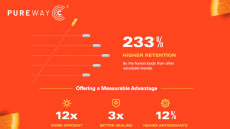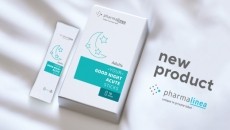NOW supports prenatal vitamin D project as part of ongoing research commitment

NOW will donate more than $100,000 in funding and free supplements to the project, called Protect Our Children NOW!, which is a two-year grassroots prenatal Vitamin D project to improve birth outcomes and combat increased healthcare costs associated with Vitamin D deficiency in utero. The pilot program, spearheaded by GrassrootsHealth, an international nonprofit public health promotion organization, will be conducted at the Western Montana Clinic (WMC) in Missoula, Montana, with tentative plans to expand to other cities in the near future.
Rick Sharpee, director of science and nutrition at NOW, said the donation is part of the company’s ongoing efforts to support vitamin D research. At the moment the company is supporting clinical trials that are looking at vitamin D’s role in prenatal bone health among black and white women, vitamin D’s role in immune health, how supplementation can affect muscular strength among Parkinson’s Disease sufferers, the vitamin’s role in fertility and a trial looking at vitamin D supplementation among sickle cell anemia suffers. Additional trials are looking at endpoints of stress biomarkers among chronic pain sufferers and the role of the vitamin among HIV positive children.
Vitamin D and preterm births
The Montana project will investigate whether boosting vitamin D status among expectant mothers can improve birth outcomes. At 29th place, Montana ranks in the bottom half of the nation in the number of preterm births. According to the March of Dimes, Montana’s current preterm birth rate is 9.3%, and those preterm births cost the state an additional $71 million annually in health care costs. However, research has suggested these costs could be halved and many preterm births prevented with proper prenatal education, vitamin D supplementation and screening.
“NOW’s mission is to empower people to lead healthier lives,” said Jim Emme, NOW’s CEO. “We are honored to partner with GrassrootsHealth to provide Vitamin D to these pregnant women in an effort to have a positive impact on their pregnancies as well as the future health of their children.”
The lead researcher for the program, Carol Wagner, MD, has been running a pilot prenatal vitamin D program out of the Medical University of South Carolina for the past two years. She said an early meta-analysis that compared past randomized control trial data with NHANES data revealed women who achieve a serum level of 40 ng/ml or more during pregnancy have a 59% lower risk of preterm birth when compared to women with serum levels less than 20 ng/ml. A full preliminary report on the South Carolina results should be out later this year. In addition, recent research published in the journal Obstetrics & Gynecology further linked vitamin D deficiency to preterm birth.
Among NOW’s support for the Montana project is $60,000 worth of Vitamin D-3 gummies featuring a 5,000-IU dose. (Carlson Labs is also donating some supplements.) Sharpee said the gummy form, while it has dosage size drawbacks, was chosen to help drive compliance. More people seem eager to eat several gummys as opposed to swallowing a tablet or softgel, he said.
Higher levels called for

Vitamin D research has proceeded apace even as new recommendations for daily intakes of the vitamin were put forward by health authorities. The new level set by the Institutes of Medicine is 600 IU for adults and 800 IU for people age 70 and older. A number of experts in the field have chimed in that this is still far too low to address chronic insufficiency of the vitamin that comes with modern life where people spend much of their time indoors or in vehicles and wear sunscreen when they are out of doors. Sharpee said NOW agrees that more vitamin D supplementation seems to be called for.
“NOW Foods follows the scientific consensus, which is still evolving. And at this time, we are in favor of the recent increase in the recommendation for vitamin D intake as a positive for improving the general health of adults. However, we consider the recommended adult dose of 600 IU/day as inadequate. This was confirmed in a recent publication indicating that 600 IU/day is insufficient for many pregnant women, especially those residing at higher latitudes,” Sharpee said.
In addition, Sharpee said there appears to be very little drawback to boosting intake of the vitamin. The material is inexpensive and there are few, if any, safety concerns.
“We are also cognizant of safety, which is always our number one priority. Since most Vitamin D experts agree that a daily intake of less than 10,000 IU/day in adults is safe in healthy individuals, we concur with the Endocrine Society recommendation of 1500-2000 IU/day as the minimum intake,” he said.
Carole Baggerly, founder and director of Grassroots Health, said the expectation is that the Montana trial will confirm the promising results from the South Carolina pilot study.
“We couldn’t have launched this program without the generous support of our partners like NOW,” she said.















